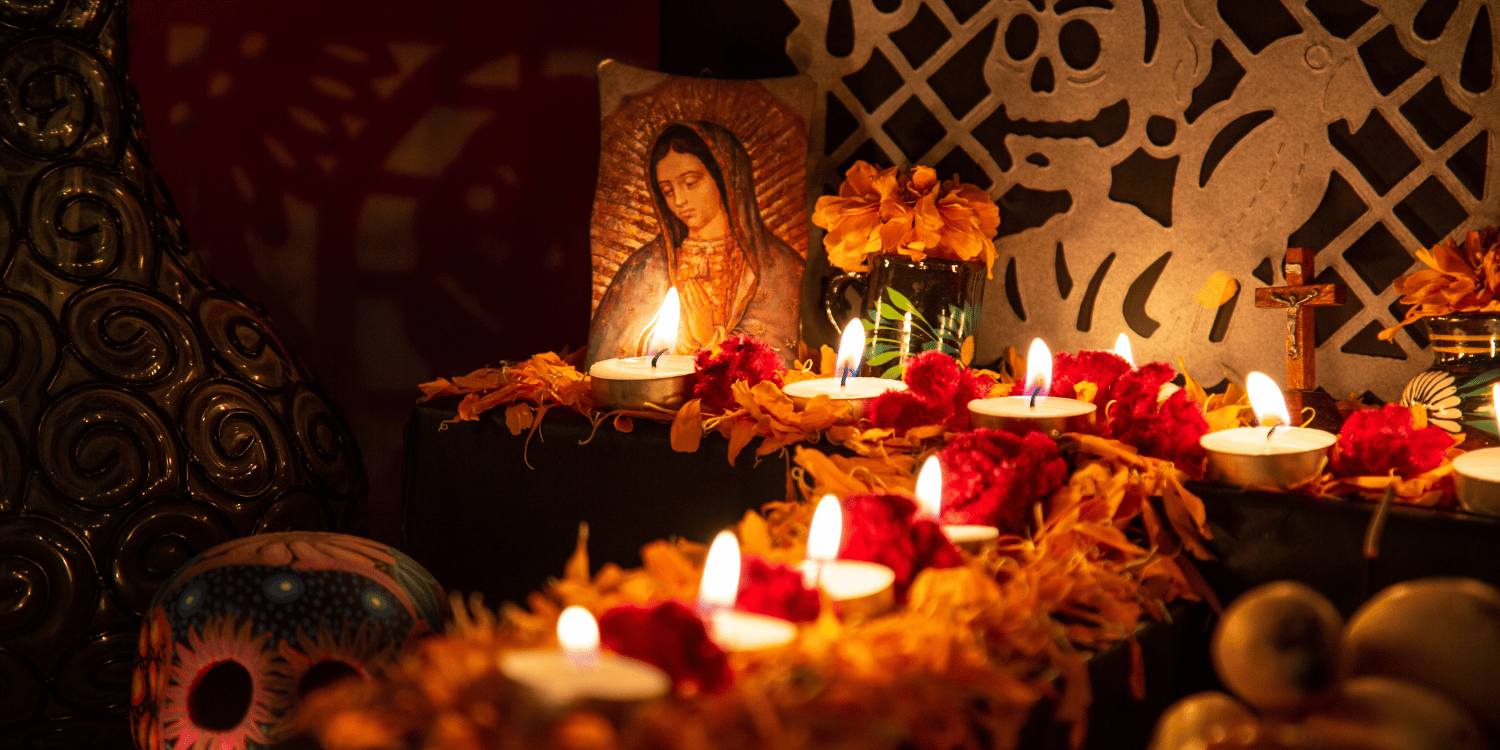
What is the real meaning of 'Allhallowtide'?
As retailers nationwide thrust Halloween and Trick or Treating on families, we look at some old and new ways of participating more deeply in the season of ‘Allhallowtide’. You may not have heard the term 'Allhallowtide' before but it has been around since the 15th century at least. Broken down, it simply means the 'time of all saints', and it begins on 31st October, All Saints’ Eve or All Hallows’ E’en - otherwise known as Halloween. It enfolds All Saints’ Day on 1st November, All Souls’ Day on 2nd November, and ends, nowadays, after Remembrance Sunday or Remembrance Day, 11th November, whichever is the later. What connects all of these, clearly, is a remembrance of the dead.
Some people call it a 'thin' time – when the boundary between heaven and earth becomes more permeable, similar to a ‘thin place,’ a concept in Celtic Christianity used to identify sacred spaces. Times and places where we might encounter God in fresh ways that startle us out of our inattention, and we are often transformed by the experience. Might this be an opportunity not to be missed for the church?
In Latin American cultures, churches set up Offrendas in the run-up to the Day of the Dead, 2nd November, where local people place photos and memorabilia of their lost loved ones, amid ornate floral tributes, candles and 'sugar' skulls (pictured above). Some traditions for All Souls' Day include bell-tolling, lighting candles, visiting graves or reading the names of the recently departed in church.
A recent phenomenon in the Christian community is the advent of Light Parties instead of Halloween celebrations such as Trick or Treating. Children are invited to participate in games and there may be some ‘light’ Christian messaging around – well – Jesus as the Light of the World. The CofE has a page of resources and ideas.
Around the diocese, the time is approached in different ways. In Fownhope, Clare Caless, editor of the parish magazine, says, “Modern Halloween celebrations have their roots in pre-Christian times. In those long-ago days, on the last night of October, the Druid priests celebrated the Festival of Samhain, or ‘Summer’s End’. They lit great bonfires and performed magic rites to ward off the dark supernatural powers of on-coming winter. Today, Christians turn to prayer instead of charms to overcome the powers of darkness. And the deeper, true meaning of All Hallows’ Eve, should not be forgotten. As Christians, we all draw closer to Christ when we remember and give thanks for our loved ones and for others who have gone before us through the gates of death.”
In Church Stretton this year on Sunday 3rd November at 3pm there will be a special service in St Laurence called “The God of All Comfort”, where we remember before God those who have died in the past year and prayers are offered for those who mourn, with refreshments following the service.
The Venerable Derek Chedzey, Archdeacon of Hereford writes, “When I was growing up, Halloween was barely mentioned and Trick or Treat was something the Americans did on the Greenham Common Airbase where I lived. Whilst Halloween celebrations have become a feature of our culture, it has become associated with spooks, ghouls and witches and things that go bump in the night! Yet it’s actually a Christian festival, All Hallows’ Eve - this is the traditional title for what we now call Halloween. In the Christian tradition, it was a day of preparation and fasting prior to celebrating All Saints’ Day. It certainly wasn’t associated with pranks, spooks, ghouls and witches but much more about preparing our hearts and minds to remember the Saints and those Christians who had died and joined the Communion of Saints. Within church history, it was only later that the commemoration of the dead, All Souls, followed All Saints. It has become today an opportunity to remember loved ones who have passed and to give thanks for lives well led. As Christians, we can rejoice that those who die in faith are now at rest and peace with God. “But we do not want you to be uninformed, brothers and sisters, about those who are asleep, that you may not grieve as others do who have no hope. For since we believe that Jesus died and rose again, even so, through Jesus, God will bring with him those who have fallen asleep.” 1 Thessalonians 4:13-14
"As October brings autumn on and the nights draw in, let us not forget to pray, give thanks for loved ones we see no longer and remember that we are called to serve our communities. “ You can read the full article by Archdeacon Derek on our website here.
You can find additional resources for Christian alternatives to Halloween on the Stewardship website here.
- ENDS -